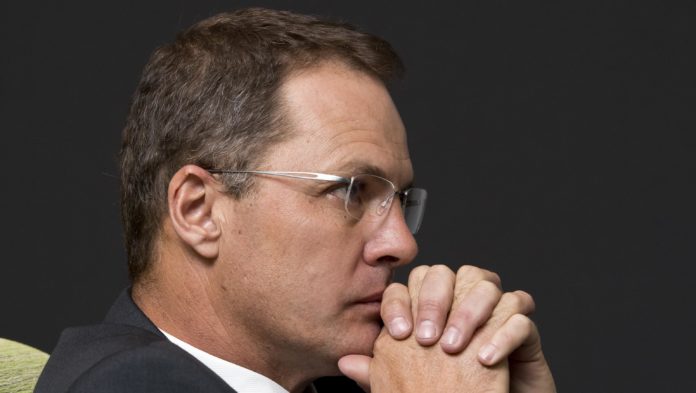
DRDGOLD’S strategy in linking up with Sibanye Stillwater had worked out exactly as planned with the next phase of growth about to start and with the real prospect of massive future expansion of tailings retreatment operations on the Far West Rand.
That’s according to DRDGOLD CEO, Niël Pretorius, who was speaking after the group reported “stellar” results for the six months to end-December which showed a doubling of operating profit to R1.4bn. There was a 2% drop in gold production to 2,984kg, but a 42% increase in the gold price to R988,998/kg helped offset the lower output.
DRDGOLD declared an interim dividend of 40c a share which is 60% up on the 25c declared for the six months to end-December 2019.
Said Pretorius: “The business is performing in a very stable way. It has good prospects and it will continue to pay dividends for as long as we are able to maintain this model”.
But he stressed future expansions would remain in line with management’s current conservative strategy and would be dependent on both movements in the gold price and political and regulatory developments within South Africa which affected the country’s attraction as an investment destination.
He described the average gold price that DRDGOLD received of R988,998/kg during the six months to end-December as “fantasy stuff”, adding that: “… the prospects for gold seem to look really attractive and we could really start pushing the boundaries of our thinking looking beyond our own resource.
“What does a model look like that could accommodate everything on the Far West Rand? We could have a much longer life with much broader participation which would also have a far more profound impact in terms of environmental clean-up.”
But Pretorius cautioned such major investment plans could be adversely affected by how attractive the country was perceived as an investment destination.
He said South Africa’s political environment was not a topic he had talked a lot about before, but it was becoming increasingly important as a “capital investment filter.”
“We have to look at the relative attractiveness of the country in terms of issues such as the rule of law and the sanctity of our courts,” he said.
Pretorius also highlighted security of tenure, regulatory certainty, and the country’s approach to transformation and black empowerment asking: “Are we on the right track? Bringing about black empowerment is so vitally important, but are we pursuing something that is just not working except for a very select few?
“It may be necessary to revisit some of those policies.
“We don’t have to be an unattractive jurisdiction for investment to dry up. We just have to be relatively unattractive compared with other jurisdictions that are slightly more attractive than ours.
“It’s all about priorities.
“Is our priority as a nation to attract investment or is our priority as a nation more ideological? I think we need to figure that out as a nation. The relationship between capital investment and jobs is something that we don’t spend enough time talking about.”











